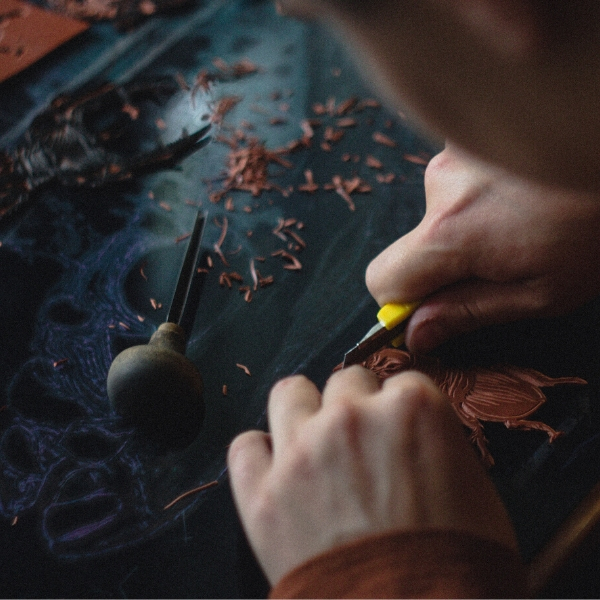When visiting the public museum recently, my family and I made our way to the upper floor that featured artifacts from what would be considered primitive cultures.
People in these parts of the world do not have the benefit of Western technology, and much of their lives are spent simply trying to survive—hunting, fishing, and cultivating crops.
No doubt it is an exhausting life, with little time for entertainment or leisure, two things we consider indispensable in our modern lives.
But something struck me about the artifacts I saw: They were all complex and in many ways, beautiful. A spoon used to stir soup was intricately carved with patterns and designs. A blanket was intricately woven. Pottery was decorated with ingenious designs and markings.
These artifacts no doubt took a great deal of time, effort, and creativity to make, and yet they were made by people who had far less leisure time than we do in the comfortable first world.
Despite the back-breaking labor they endured to simply put food on the table, these people still found time to create, and to do so with great skill and ingenuity.
Why Make It When You Can Buy It?
That suggests a question: When is the last time you made something?
I don’t mean sticking a pizza in the oven or putting together that table from Ikea. I mean really making something—a craft, a work of art, a piece of furniture, or anything that demands your energy and creative capacity.
We live in a consumeristic society. We would much rather get on Amazon and order what we need, no matter how trivial, than make something ourselves. Then, once we’ve used it up or something newer is available, we throw away our former purchases and buy more.
We have so much abundance that things mean hardly anything to us at all. It is a paradox—the more we have, the less we care about what we have. We don’t love the things themselves as much as we love the process of getting new things.
As a society, we love to get and consume and throw away and get more. And if the process of getting and spending ever came to an end, we’d hardly know what to do with ourselves.
Consumerism and Porn
So what does consumerism have to do with porn? Pornography is consumerism applied to people. Get, use, dispose, repeat.
Porn is the commodification of the human person. It makes people cheap and disposable, to be used up and thrown away. It makes us soulless consumers of humanity, of living souls that have been degraded and reduced for our pleasure.
And why do we reduce people to products? Why do we so easily reduce a person of infinite worth to a thing to be used and thrown away? Because it’s easier.
Related: License to Lust–How Porn Trains Objectification
See, real relationships take hard work. Just like a work of art, they involve time, emotional energy, creativity, sacrifice. They require love, and love always costs something. It always demands an investment of ourselves.
Consuming is always easier. One-click shopping on Amazon is much less painful than building a chair from scratch. Likewise, clicking on pictures of naked women is always easier than the sacrifice required to live with a person, to meet their needs, to care for them, to love them fully in the way they need to be loved.
But even though it is easier to consume, it reduces to hollow and empty shells of what we were made to be. We were made in the image and likeness of God—and that ultimately means we were made to love, and love is always a creative act. When we fail to love, we fail to create, and a little bit more of the image of God fades from our souls.
Love Alone Creates
Love is the most powerful force in the universe, and it is always creative. Love alone brought the universe into existence. Love alone can breathe life into stone through a sculptor’s chisel. And love alone can produce an eternal soul in a tiny, embryonic human life.
To reach our full maturity as human beings, to reach our potential as beings created in God’s image and likeness, we must love and we must create. We can’t merely be consumers, though some consumption is always inevitable. We can’t simply use up and destroy while never producing anything new from the abundance of our hearts. And above all, we can never see people as objects to be used, but must rather see them as souls to be loved.
The creative act will not only heal our own souls, but it will breathe life and goodness into others. Creativity doesn’t need to be the domain of artists or specialists. We can all create, whether it be through works of mercy, service to our friends and family, or singing a song, no matter how out of tune, from a joyful heart.








As a Christian Libertarian [man], & recovering addict, I like to think that I have a keener than usual eye in regards to the VAST-consumerism envolved in the AdultEntertainment Industry. Porn stole 12 years of my life from me. However, Covenant Eyes was instrumental in the process of my deliverance.